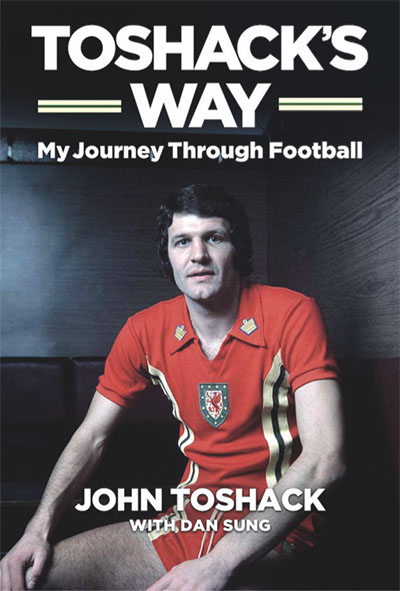
DeCoubertin Books, £20
Reviewed by Huw Richards
From WSC 385, April 2019
Buy the book
Given that John Toshack turns 70 on March 22, one might assume this to be the final accounting of an extraordinary career. But that he and co-author Dan Sung, who does a decent job of capturing a distinctive voice, had to late last year add a chapter chronicling a brief and highly eventful spell in Iran with Tractor Sazi suggests otherwise. “Never say never,” as Toshack is wont to say. It is a story worth telling, “journey” to be taken literally for a trajectory incorporating ten countries, with hugely demanding African and Asian stints at an age when most are at least contemplating retirement.
The early years, as Cardiff’s finest product between Fred Keenor and Aaron Ramsey, a key contributor to Liverpool’s rise in the 1970s and a transformative manager of Swansea, were covered in an early memoir but deserve retelling. They are seen with the perspective of age, notably acknowledging that “I did things I would never do again… I became a bit erratic”, as Swansea’s fourth-to-first miracle went into reverse.
His achievements are impressive, but his true significance lies in being a rare British football figure who made his career abroad. While more anecdotal than analytical, the story still draws out the temperament – a confident, clear-minded loner – which made this possible.
He leaves little doubt that one reason for his success and durability, most of all in Spain, was that he went by himself rather than trailing the coteries assembled by many managers. Inquiring by nature, he might in any case have learnt languages and immersed himself in the personnel and culture of clubs and communities, but being by himself left no alternative. He became, most of all at Real Sociedad, an honorary local where most British coaches abroad remained exiles.
He is old school, but never unthinkingly so – acknowledging the usefulness of stats, but arguing that they usually serve to confirm his own observation. He recognises the universal managerial facts of a dysfunctional life created by overbearing owners, and of having “to win players over, no matter who you are”.
Disinclination to defer to either egomaniac owners or difficult players combined with his advancement of young talent create, he argues, a pattern of laying the ground for success by successors. Troubled as his spell managing Wales was – his account incorporates a crisply compelling demolition of Robbie Savage as both player and personality along with the dry observation that with Craig Bellamy “the positives outweighed the negatives. By about 51 per cent to 49’” – he is right to claim his part in the subsequent achievements of Gary Speed and Chris Coleman and generous in allotting much of the credit to his assistant Brian Flynn. Always worth listening to, Toshack shows himself worth reading as well.